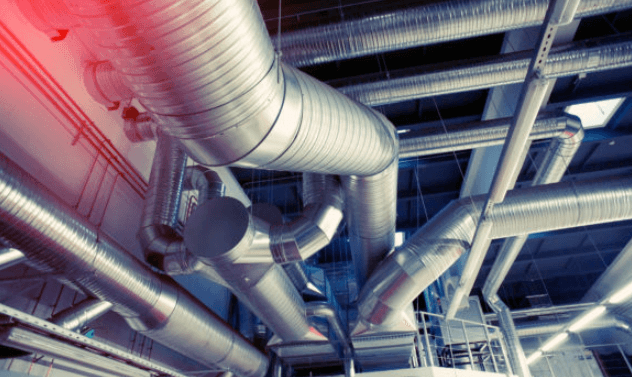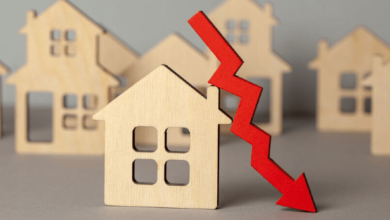Balancing Cost And Quality: How To Secure Reliable Suppliers For HVAC Projects

Finding reliable suppliers for HVAC (Heating, Ventilation and Air Conditioning) projects is integral to their success. HVAC systems play a pivotal role in maintaining comfort and air quality for homes, offices and industrial facilities alike. So, selecting suppliers who strike an appropriate balance between cost and quality is paramount to meeting high-quality standards while staying on budget. This article explores key considerations when finding trustworthy providers for your HVAC projects.
1. Define Your Project Needs
Before commencing your search for suppliers, you must have an in-depth knowledge of your project requirements. Determine its size and scope as well as the equipment needed and any unique features or specifications needed; this step will allow you to narrow down options while seeking suppliers who meet the specific needs of your project. In the realm of HVAC projects, selecting the right suppliers is paramount to achieving the delicate equilibrium between cost and quality, ensuring that your project not only stays within budget but also meets the highest standards of efficiency and reliability. You can save time and money by partnering with Raiven, who already pre-negotiated the discounts for the leading HVAC suppliers.
2. Establish A Budget
One of the key challenges in striking an appropriate balance between cost and quality in HVAC projects is setting an appropriate budget. You need a clear idea of your spending ability while keeping in mind the long-term operating costs of the system, especially considering that investing in high-quality equipment and installation may cost more initially but could save on energy and maintenance costs over time. Therefore, it is vital to strike an equilibrium between budgetary constraints and quality for the ultimate success of HVAC system installation projects.
3. Research And Identify Suppliers
Once you understand your project requirements and budget, the next step should be identifying potential suppliers. Reach out to HVAC professionals, contractors and industry associations for suggestions on potential suppliers. You can also explore online resources, trade shows, and industry publications to discover reputable suppliers in your area.
Consider the following factors when evaluating potential suppliers:
- Reputation: Look for suppliers with a strong track record of delivering high-quality HVAC equipment and services. Check online reviews and ask for references from past customers.
- Experience: Choose suppliers with extensive experience in the HVAC industry. Experienced suppliers are more likely to understand your project’s unique needs and provide effective solutions.
- Certification And Compliance: Make sure the suppliers you consider meet industry standards and certifications, such as for energy efficiency, safety, and environmental compliance.
- Product Line-Up: Assess each supplier’s selection of HVAC products and services; those offering more choices can offer tailored solutions tailored to meet the specific requirements of your project.
- Pricing: To compare prices from multiple suppliers, obtain quotes from each and compare them side-by-side. When considering value, don’t assume the lowest price is necessarily best; take into account product quality, warranty coverage and service provided as part of an overall package.
4. Quality Vs. Cost Trade-Off
Balancing cost and quality is a delicate act. Though cheaper HVAC equipment may tempt you to cut costs and save money in the short-term, its long-term ramifications should always be carefully considered. Lower-quality equipment could mean higher maintenance and energy costs as well as decreased lifespan or potential disruptions in operations at your facility.
Investment in high-quality HVAC equipment has numerous advantages, such as:
- Energy Efficiency: HVAC systems that use less energy can significantly cut operational costs over time. Look for providers offering products with high Seasonal Energy Efficiency Ratio ratings (SEER) ratings and energy-saving features, as these will offer significant cost savings.
- Reliability: High-quality equipment is less likely to experience breakdowns or failure, reducing costly repairs and downtime costs.
- Warranty: Reputable suppliers often offer extended and more comprehensive warranties that offer peace of mind in case unexpected problems arise, saving both time and money should they arise.
- Environmental Impact: Energy-efficient HVAC systems have a smaller carbon footprint, contributing to sustainability goals and potentially qualifying for rebates or incentives.
- Comfort And Air Quality: High-quality HVAC systems provide superior comfort and air quality, creating a more pleasant and productive environment for occupants.
To strike the appropriate balance, consider the total cost of ownership (TCO). While higher quality equipment may have higher initial costs, its increased energy efficiency and maintenance expenses can bring significant cost savings over time.
Read also Interview With Niels Provos Mazieres and Newman Wired.
5. Negotiate And Review Contracts
Once you’ve selected potential suppliers, it’s time to negotiate and review contracts. Be sure to:
- Clearly define the scope of work, including equipment specifications, installation requirements, and project timelines.
- Discuss pricing, payment terms, and any potential cost overruns.
- Verify the warranty terms and conditions, such as its duration and what it covers.
- Make sure the supplier complies with all relevant regulations and industry standards.
- Before signing any contract, address any concerns or inquiries you have.
6. Consider Long-Term Relationships
Establishing relationships with reliable HVAC suppliers can bring many advantages for your projects. When you form trust and establish rapport, they are more likely to provide exceptional service, prioritize your projects and offer competitive prices – as well as increase consistency and reliability in your HVAC systems.
7. Monitor Performance And Provide Feedback
Once your HVAC project is completed, it is critical to monitor its performance using regular maintenance and performance assessments from suppliers. Doing this will allow early identification of any potential issues and ensure your HVAC system remains operating efficiently.
Provide feedback to your suppliers on the quality of their products and services. Constructive Feedback can lead to improvements in their offerings and strengthen the partnership.
As previously discussed, finding reliable suppliers for HVAC projects involves striking a delicate balance between cost and quality. By defining project needs, creating a budget, researching suppliers thoroughly, and carefully considering tradeoffs between cost and quality you can make informed decisions that lead to successful HVAC projects. Remember that investing in high-quality equipment will bring long-term advantages in energy efficiency, reliability, and overall cost savings – building strong relationships with suppliers while monitoring their performance will help your HVAC systems continue meeting your requirements for years to come.




